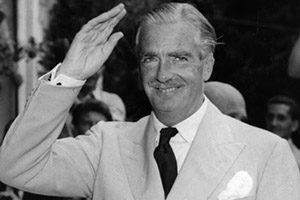
History-Periods
Past eras

From pre-history to today
Choose your period

Periods of History
explore the different eras

The 1955 general election was held on May 26, 1955, and was contested between the incumbent Conservative Party, led by Prime Minister Winston Churchill, and the opposition Labour Party, led by Hugh Gaitskell.
The Conservatives campaigned on a platform of economic stability and modernization, promising to continue their policies of reducing government spending, cutting taxes, and promoting economic growth. They also emphasized their record of strong leadership and commitment to national defense, particularly in the context of the ongoing Cold War.
Labour, on the other hand, focused on issues such as housing, education, and social welfare. They criticized the Conservatives for their perceived neglect of domestic issues and argued that their policies favored the wealthy at the expense of working-class families.
The election campaign was also notable for the emergence of new media platforms, particularly television. The parties used televised debates and other broadcasts to reach a wider audience than ever before, and the impact of television on British politics continued to grow in the following years.
In the end, the Conservative Party won a decisive victory, securing a majority of 60 seats in the House of Commons. The party's success was due in part to their strong record on economic issues, as well as Churchill's popularity as a wartime hero and charismatic leader. The election also marked a continuation of the post-war consensus on economic policy, with both major parties broadly committed to free-market principles and the need for government intervention in certain areas.
Following the election, Churchill remained as Prime Minister for several months before resigning in 1955 due to declining health. He was succeeded by Anthony Eden, who faced his own challenges in office, including the Suez Crisis of 1956. However, the Conservative Party's victory in the 1955 election helped to consolidate their position as one of the dominant forces in British politics, setting the stage for their continued dominance throughout the 1950s and early 1960s.
Winston Churchill suffered from several health issues throughout his life, including depression, anxiety, and a mild form of bipolar disorder. In addition, he was known to be a heavy smoker and drinker, which had an impact on his overall health.
Churchill's health became a concern during his second term as Prime Minister, and he suffered a stroke in 1953 that left him partially paralyzed and unable to speak for several months. Despite his recovery, he continued to suffer from a variety of health problems, including high blood pressure, arteriosclerosis, and fatigue.
Churchill's declining health was a factor in his decision to resign as Prime Minister in 1955, although he remained an active member of Parliament until his retirement in 1964. Despite his health issues, Churchill continued to be regarded as one of Britain's most important political figures, and his legacy as a wartime leader and statesman remains firmly intact.
Churchill's resignation came as a surprise to many, as he was still highly respected and popular among the British public. However, he felt that his declining health made it difficult for him to continue to serve as Prime Minister effectively, and he wanted to ensure that the country had strong leadership moving forward.
Churchill was succeeded as Prime Minister by Anthony Eden, who had previously served as his deputy during the 1950s. Despite his retirement from active politics, Churchill remained an important figure in British public life until his death in 1965, and his legacy as one of Britain's greatest leaders remains firmly intact.
If you have a suggestion regarding additional topics you would like to see included - please let us know
Reference: Article by Greg Scott (Staff Historian), 2024
Tour Reviews
History Attractions
Submit Tour Suggestions
2024 Departures
Spotlight Tours
Events and anniversaries

All content and images are protected by copyright to Access History